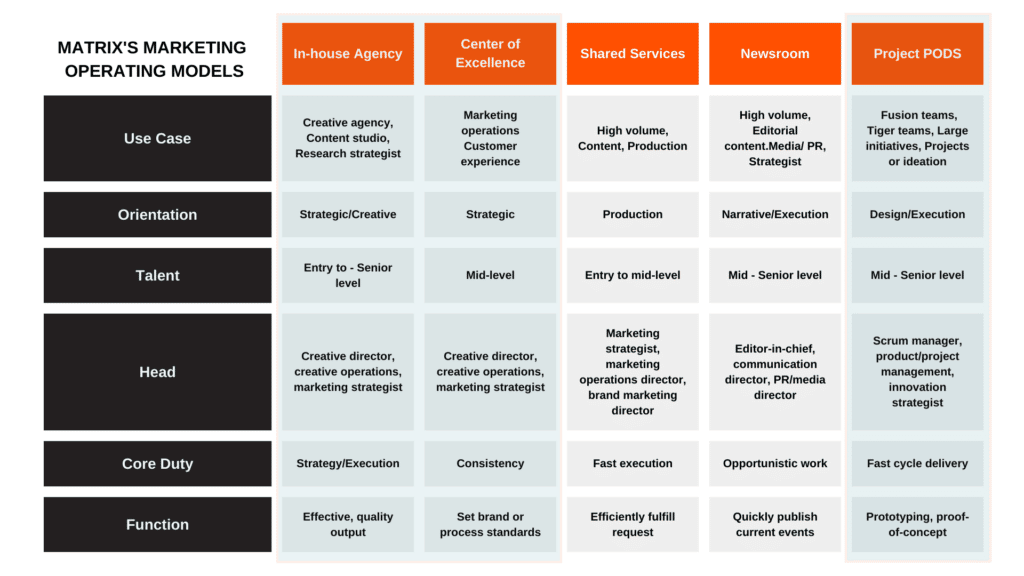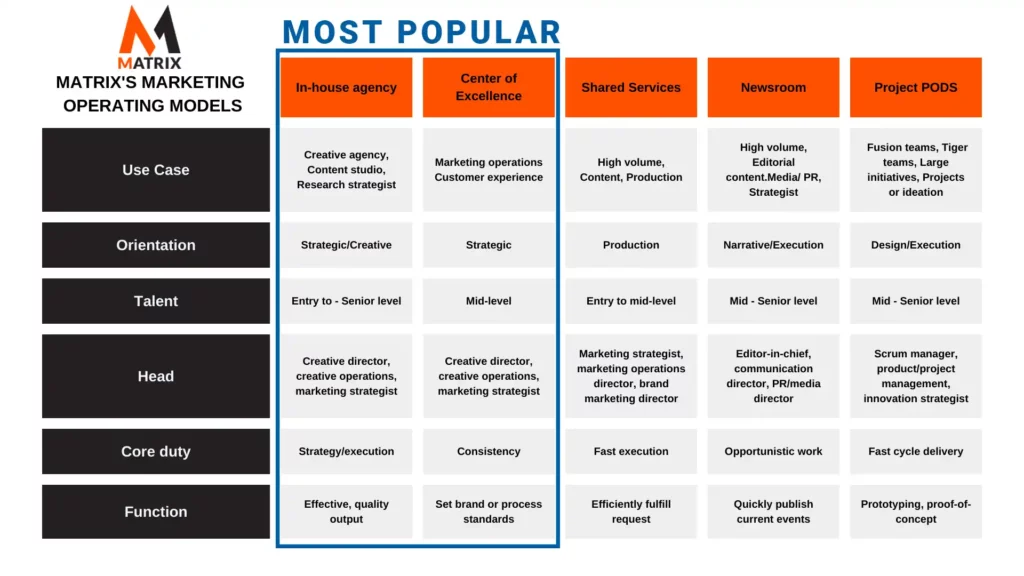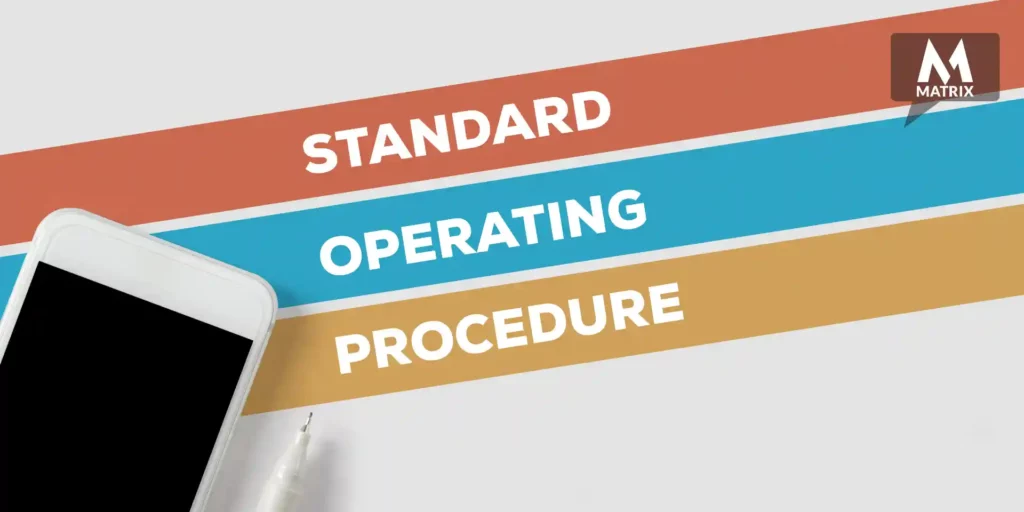Complete Marketing Operations Guide to Digital Transformation
Marketing operations ensure that all marketing activities are carried out efficiently and effectively.
Analogy: The “Complete Marketing Operations Guide to Digital Transformation” as a Blueprint for Building a Smart City
Imagine you’re tasked with building a smart city from the ground up. This isn’t just any city—it’s designed to be innovative, efficient, and future-proof. The “Complete Marketing Operations Guide to Digital Transformation” serves as the blueprint for constructing this advanced metropolis, guiding every decision and action.
- Infrastructure Planning (Technology Stack): Just like roads, power grids, and water systems form the backbone of a city, your marketing operations rely on the foundational technology stack. Without robust systems like CRM, automation platforms, and analytics tools, your transformation journey can’t even begin.
- City Zones (Marketing Channels): Each zone in the smart city has a specific purpose—residential for living, commercial for business, industrial for production. Similarly, digital marketing has distinct channels like social media, email, content marketing, and paid ads, each tailored for a specific goal.
- Utilities and Energy (Data and Insights): As utilities like electricity and water fuel a city, data fuels your marketing strategy. But raw data is like untapped energy—the analytics transforms it into actionable insights, powering your campaigns and decision-making.
- Traffic Management (Customer Journeys): Managing traffic flows is crucial for a city’s success, ensuring people and goods move efficiently. In marketing, understanding and optimizing customer journeys ensures your target audience experiences seamless interactions at every touchpoint.
- Governance (Marketing Operations Management): Cities require effective governance to function—rules, policies, and coordination among departments. Similarly, marketing operations need structured workflows, clear roles, and aligned strategies to avoid chaos and inefficiency.
- Smart Systems (AI and Automation): A smart city integrates AI to monitor air quality, manage traffic, and optimize energy use. Your digital transformation guide emphasizes the role of AI and automation in streamlining repetitive tasks, personalizing campaigns, and driving real-time decisions.
- Sustainability (Scalable Strategies): The best smart cities are built with sustainability, ensuring they grow without breaking down. Likewise, a strong digital marketing transformation focuses on scalable solutions, allowing your operations to expand as your business evolves.
By following this guide as your blueprint, you’re not just building a marketing operation—you’re designing a smart marketing ecosystem that is interconnected, data-driven, and ready for the future. And like a well-planned city, it sets the foundation for long-term growth, innovation, and success.
What are marketing operations?

Marketing operations are critical for any organization, regardless of size or industry. It encompasses all marketing activities and delivers the right message to the right customer at the right time. But what does that mean in practice?
What are the key functions of Operations, and how can you ensure it’s running smoothly in your organization?
The main marketing activity is to support the decision-making process of the marketing department.
They report to the marketing director or a marketing manager. Marketing operations is responsible for planning, executing, and monitoring all marketing activities. This includes developing marketing plans, setting budgets, and measuring results. AIProdPad Product Development Transformation Through AI-Driven Innovation [White Paper]
Efficient collaboration is not achieved through org changes but through operating model evolutions.
What are the key functions of marketing operations?

The key functions of marketing activities are planning, executing, and monitoring all marketing activities.
This includes developing marketing plans, setting budgets, and measuring results. Marketing operations are responsible for supporting the decision-making process of the marketing department by providing data and insights to help them make informed decisions.
This includes everything from planning and budgeting to execution and analysis. It’s a critical process for any organization, regardless of size or industry.
Functions of Marketing activities include:
- Planning: Developing a strategic plan for marketing activities, including setting goals, objectives, and budgets.
- Execution: Carrying out the day-to-day tasks necessary to implement the marketing plan. This includes developing and managing campaigns, as well as tracking results.
- Analysis: Measuring the success of marketing activities and making adjustments as needed. This helps ensure that the marketing plan is achieving its desired results.
There are a few things you can do to make sure Marketing Operations (as reported in Marketing Operating Model: Meet your new MOM) are running smoothly in your organization:
Define roles and responsibilities: Make sure everyone involved in the process knows their role and what they’re responsible for.
- Set clear goals and objectives: Set realistic goals that can be measured and tracked.
- Establish clear communication channels: Ensure all team members have clear communication channels. This will help keep everyone on the same page and prevent misunderstandings.
- Be flexible: Be prepared to adjust the plan based on results. The goal is always moving forward, so don’t be afraid to make changes.
By following these tips, you can be sure that Marketing activities are running smoothly in your organization and that you’re on your way to achieving your marketing goals.
Drive Better Results with a Complimentary Marketing Audit
Take the guesswork out of your marketing strategy. Our Free Marketing Audit is designed to analyze your current efforts, identify gaps, and uncover growth opportunities. Whether you’re struggling with low ROI, limited engagement, or unclear targeting, we’ll provide actionable insights to help you achieve your business goals.

Marketing Operations is a process-oriented function within an organization responsible for creating, deploying, and optimizing marketing plans and campaigns. Marketing activities ensure that all activities are executed efficiently and effectively to achieve desired business results.
A successful Marketing Operations department requires a lot of coordination and communication between different teams within the company. Understanding each team’s role and responsibilities is important to create a well-oiled machine.
Here is everything you need to know about Operations:
- The Marketing Operations team creates, deploys, and optimizes marketing plans and campaigns.
- Marketing Operations require a lot of coordination and communication between different teams within the company.
- Understanding each team’s role and responsibilities is important to create a well-oiled machine.
- A successful Marketing activities department can help an organization save time and money by streamlining processes and improving efficiencies.
The Marketing Operations team creates, deploys, and optimizes marketing plans and campaigns. To be successful, they must have a clear understanding of each team’s role and responsibilities. Additionally, Marketing Operations require a lot of coordination and communication between different teams within the company.
By clearly understanding each team’s roles and responsibilities, operations can ensure that all marketing activities are executed efficiently and effectively.
Marketing Operations is a critical process for any organization, regardless of size or industry.
What does that mean in practice? What are the key functions of Marketing Operations, and how can you ensure it’s running smoothly in your organization?
By following these tips, you can be sure that Marketing activities are running smoothly in your organization and that you’re on your way to achieving your marketing goals. How to Choose the Right AI Digital Marketing Agency: A Comprehensive Guide for Marketing Managers
Major problems for CMO in eVTOL aircraft about marketing operations

The Marketing Operations team creates, deploys, and tunes your marketing campaigns. To be successful, they must have a clear understanding of each team’s role and responsibilities. Marketing Operations require a lot of coordination and communication between different teams within the company.
A successful Marketing Operations department can help an organization save time and money by streamlining processes and improving efficiencies. By clearly understanding each team’s roles and responsibilities, Marketing activities can ensure that all marketing activities are executed efficiently and effectively.
However, there are some major problems that CMOs face when it comes to marketing operations in eVTOL aircraft:
- Lack of coordination between different teams: There can be a lot of overlap between different teams in an organization, leading to confusion and miscommunication. The Operations team must ensure everyone is on the same page to avoid misunderstandings.
- Lack of communication channels: Even if everyone is on the same page, there will be problems if they cannot communicate effectively. The ops team should establish clear communication channels between all team members to ensure that everyone is kept up-to-date on what’s going on.
- Not enough focus on the customer: The eVTOL aircraft market is still in its infancy, so there is a lot of uncertainty about what customers want. The ops team needs to ensure that they are constantly gathering customer feedback and using it to improve the marketing plan.
By following these tips, you can be sure that ops are running smoothly in your organization and that you’re on your way to achieving your marketing goals.
Affordable SEO Solutions That Drive Real Results
Matrix Marketing Group Delivers Customized SEO Strategies with Transparent Pricing for Maximum ROI. See SEO Services.
Why the CEO should care about the Marketing Operations

The CEO should care about Marketing Operations because he delivers the right message to the right customer at the right time.
By streamlining processes and improving efficiencies, Marketing Operations can help an organization save time and money.
Why the CFO should care about the Marketing Operations
The CFO ensures the organization’s financial health and marketing expenses are used effectively.
Marketing Operations is responsible for all marketing activities, so the CFO must understand what it does and how it impacts the bottom line.
Here are just a few ways Marketing Operations can help make your organization more money:
- Optimizing campaigns to achieve better results while spending less money
- A better understanding of customer Lifetime Value and how to increase it
- Tracking return on investment (ROI) for all marketing initiatives
Ensure you’re not missing out on potential savings – talk to your CFO about implementing Marketing Operations in your organization. Denver Digital Marketing Agencies are Failing Their Clients.
How can Marketing Operations help your organization save time and money?

Marketing Operations is a critical process for any organization, regardless of size. It encompasses all marketing activities and delivers the right message to the right customer. What are the key functions of Operations, and how can you ensure that they run smoothly in your organization?
One of the main ways Operations can help your organization save time and money is by streamlining processes and improving efficiencies.
By coordinating between different teams and ensuring everyone is on the same page, Marketing Operations can ensure that all marketing activities are executed efficiently and effectively. Additionally, Marketing ops can help increase customer Lifetime Value (LTV) and track ROI for all marketing initiatives.
Talk to your CFO about implementing Marketing Operations to improve your organization’s marketing ops. With the right tools and resources, Marketing ops can help your organization achieve its marketing goals and save time and money.
What is marketing for the marketing operation department?

The marketing operation department is responsible for planning, executing, and monitoring all marketing activities. This includes creating and delivering the right message to the right customer at the right time.
Marketing operations are critical for any business, regardless of size or industry. It encompasses all marketing activities and delivers the right message to the right customer at the right time. But what does that mean in practice? What are the key functions of marketing operations, and how can you ensure that they run smoothly in your organization?
One of the main ways marketing operations can help your organization save time and money is by streamlining processes and improving efficiencies.
By coordinating between different teams and ensuring everyone is on the same page, operations can ensure that all marketing activities are executed efficiently and effectively. Additionally, marketing ops can help increase customer lifetime value (LTV) and track ROI for all marketing initiatives.
Talk to your CFO about implementing marketing ops to improve your organization’s marketing operations. With the right tools and resources, operations can help your organization achieve its marketing goals and save time and money.
But what does that mean in practice? What are the key functions of Marketing ops, and how can you ensure running smoothly in your organization? Stay tuned for our upcoming blog post on Marketing Operations!
Which of the following is a core aspect of marketing?
There are four elements of marketing: product, price, place, and promotion. Each element plays a role in delivering the right message to the right customer at the right time.
Product is what you’re selling, price is how much you’re charging for it, the place is where customers can buy it, and promotion is how you’re marketing it.
These four elements create a well-rounded marketing strategy to help your organization achieve its marketing goals.
What are the marketing operations processes?

There’s no one-size-fits-all answer to this question, as the operations processes will vary from organization to organization. However, some key functions are essential for any successful marketing operation. These include:
- Planning and strategy involve creating a plan for all marketing activities and ensuring it aligns with the overall business goals.
- Execution – This is where the day-to-day work of implementing the marketing plan occurs.
- Analysis and optimization – This is where you assess your campaigns’ performance and make changes to improve results.
- Communication and coordination – This ensures that all stakeholders know what’s happening in the marketing department and that everyone is working towards the same goals.
What are the different roles in the marketing operation department?
The marketing ops department executes the marketing plan and achieves the desired results. This involves a variety of different roles, each with its specific responsibilities.
Some of the key roles in marketing ops are:
- Marketing operations and strategy manager – The marketing operations and strategy manager is responsible for marketing operations strategy overseeing all marketing activities and ensuring that they are aligned with the overall business goals. Has a seat at the executive table in small organizations and speaks to the sales operations manager often.
- Marketing operational manager – The marketing manager oversees all marketing activities and ensures they are aligned with the overall business goals.
- Marketing Coordinator – The marketing coordinator is responsible for implementing the marketing plan and ensuring all tasks are completed on time and to the required standard.
- Graphic designer – The graphic designer creates visual elements for all marketing campaigns.
- Copywriter – The copywriter is responsible for compelling content that engages the reader and drives conversions.
- Social media manager – The social media manager is responsible for developing and implementing social media campaigns that reach the target audience.
- Website developer – The website developer is responsible for building and maintaining the company website.
- Email marketer – The email marketer creates and sends email campaigns that generate leads and sales.
- PPC specialist – The PPC specialist manages pay-per-click campaigns and maximizes return on investment.
The marketing department is considered part of the organizational level
The marketing department is responsible for executing the marketing plan and achieving the desired results.
This involves a variety of different roles, each with its specific responsibilities. Some of the key roles in operations are listed below. The marketing ops teams make it all happen at the tactical level.
What are the benefits of having a marketing operation department?

There are many benefits to having a marketing operation department, including:
- Improved efficiency – Having a dedicated team responsible for marketing ensures that all tasks are completed promptly and efficiently.
- Cost savings – A well-run marketing operation department can save the organization money by avoiding wastage and duplication of effort.
- Greater control – The marketing operation department provides greater control over the direction of marketing activities and ensures that they are aligned with the overall business strategy.
- Increased ROI – By optimizing all marketing activities, the marketing operation department can help increase the organization’s return on investment.
- Improved communication – The marketing operation department ensures that all stakeholders are up-to-date with the latest marketing activities and everyone is working towards the same goals.
The operations department is responsible for executing the marketing plan and achieving desired results. There are many benefits to having a dedicated operations team, including improved efficiency, cost savings, greater control over marketing activities, increased ROI, and improved communication.
If you want to ensure that your marketing efforts are aligned with your business goals and generate maximum returns, then you need a strong marketing operations function.
70% of agencies need help integrating AI solutions.
70% of agencies need help integrating AI solutions into their tech stack, citing a lack of interoperability as a major barrier. 85% of marketing agencies need more in-house expertise to manage and deploy multi-AI agent systems effectively.
Marketing department structure best practice
The marketing department is responsible for executing the marketing plan and achieving the desired results. This involves a variety of different roles, each with its specific responsibilities. Some of the key roles in marketing ops are listed below.
To ensure that all marketing activities are aligned with the overall business strategy and are generating the desired results, it’s important to have a well-structured marketing department. A common structure for the marketing department is as follows:
- CEO/President – The CEO or President is responsible for setting the overall direction and goals for the company, and the marketing department reports to them.
- Senior management – Senior management consists of the executives responsible for specific business areas, such as sales, finance, operations, and product development. The marketing department works closely with these executives to ensure all marketing activities align with their respective responsibility areas.
- Marketing director – The marketing director oversees all aspects of the marketing department, including strategy, budget, and operations. They report to senior management and work closely with the other team members to ensure that all activities are executed effectively.
- Marketing managers – Marketing managers manage specific marketing campaigns or initiatives. They report to the marketing director and work closely with other team members to ensure that all activities are executed effectively.
- Marketing coordinators – Marketing coordinators support the marketing department by assisting with administrative tasks, such as preparing reports, coordinating meetings, and maintaining contact lists. They report to the marketing director or a marketing manager.
- Marketing analysts – Marketing analysts conduct research and analysis to support the marketing department’s decision-making process. They report to the marketing director or a marketing manager.
The above structure is just one example of how the marketing department can be organized. The specific structure will vary from organization to organization, depending on size, industry, and business model.
Operating strategy case studies and HubSpot implementations
1. PepsiCo
PepsiCo is a global food and beverage company with a portfolio of brands that includes Pepsi, Frito-Lay, Gatorade, and Quaker.
PepsiCo has had to continuously adapt its operating strategy to keep up with the ever-changing food and beverage industry.
One of the key changes they made was to move from a functional structure to a product-based structure. This allowed them to better align their marketing activities with the products that were selling best, which resulted in increased sales and market share.
2. Samsung
Samsung is a global electronics company that sells various products, including smartphones, televisions, and home appliances.
Over the years, Samsung has undergone several changes in its operating strategy to stay competitive in the electronics market.
They shifted from a product-based structure to a customer-centric structure. This change allowed them to focus on meeting the needs of their customers rather than just selling products. As a result, Samsung saw an increase in sales and profits.
3. HubSpot
HubSpot is a software company that develops marketing and sales automation software. To stay competitive in the rapidly changing software market,
HubSpot has had to adapt its operating strategy continuously. In 2016, HubSpot switched from a product-based structure to a customer-centric structure.
This change allowed them to focus on meeting the needs of their customers rather than just selling products. As a result, HubSpot saw an increase in sales and profits.
4. Amazon
Amazon is a global ecommerce company that sells a wide range of products and services. To stay competitive in the rapidly changing ecommerce market, Amazon has had to adapt its operating strategy continuously.
In 2015, Amazon switched from a product-based structure to a customer-centric structure. This change allowed them to focus on meeting the needs of their customers rather than just selling products. As a result, Amazon saw an increase in sales and profits.
5. Ikea
Ikea is a global home furnishings company that sells various products, including furniture, home accessories, and kitchen appliances. To stay competitive in the rapidly changing home furnishings market, Ikea has had to adapt its operating strategy continuously.
In 2017, Ikea switched from a product-based structure to a customer-centric structure. This change allowed them to focus on meeting the needs of their customers rather than just selling products. As a result, Ikea saw an increase in sales and profits.
Conclusion
Marketing operations are critical for any organization, regardless of size or industry. It encompasses all marketing activities and delivers the right message to the right customer at the right time.
But what does that mean in practice? What are the key functions of Marketing Operations, and how can you ensure it’s running smoothly in your organization?
Marketing operations is responsible for planning, executing, and monitoring all marketing activities. This includes developing marketing plans, setting budgets, and measuring results.
General FAQs
What is the role of marketing operations?
The main function of marketing operations is to support the marketing department’s decision-making process. They report to the marketing director or a marketing manager. Marketing ops is responsible for planning, executing, and monitoring all marketing activities. This includes developing marketing plans, setting budgets, and measuring results.
What are the key functions of marketing operations?
The key functions of marketing operations teams are planning, executing, and monitoring all marketing activities. This includes developing marketing plans, setting budgets, and measuring results. Operations are responsible for supporting the decision-making process of the marketing department by providing data and insights to help them make informed decisions.
How can you make sure marketing operations are running smoothly in your organization?
You can do a few things to ensure your organization’s marketing operations run smoothly. First, ensure the marketing operations team has the necessary resources to do their job. This includes a budget, staff, and equipment.
What are the challenges of marketing operations?
The main challenge of marketing operations is coordinating and managing all the different marketing activities. This includes developing marketing plans, setting budgets, and measuring results. Marketing operations also need to be able to provide data and insights to help the marketing department make informed decisions. Another challenge is staying competitive in a rapidly changing market. This requires adapting your operating strategy constantly.
What is the future of marketing operations?
Marketing operations are critical for any organization, regardless of size or industry. It encompasses all marketing activities and delivers the right message to the right customer at the right time. But what does that mean in practice? What are the key functions of Marketing Operations, and how can you ensure it’s running smoothly in your organization?

